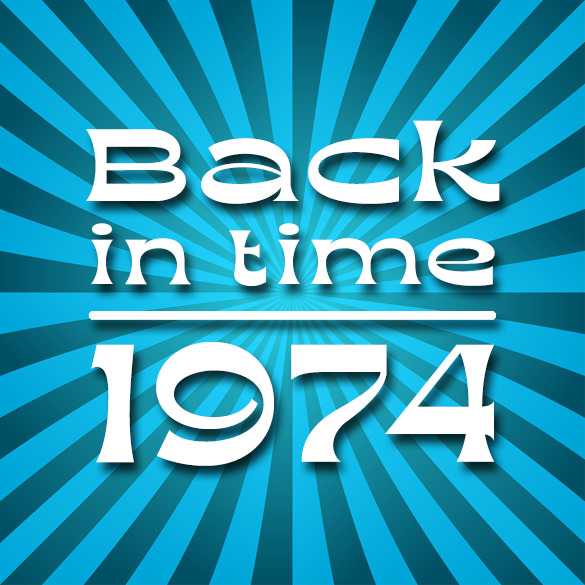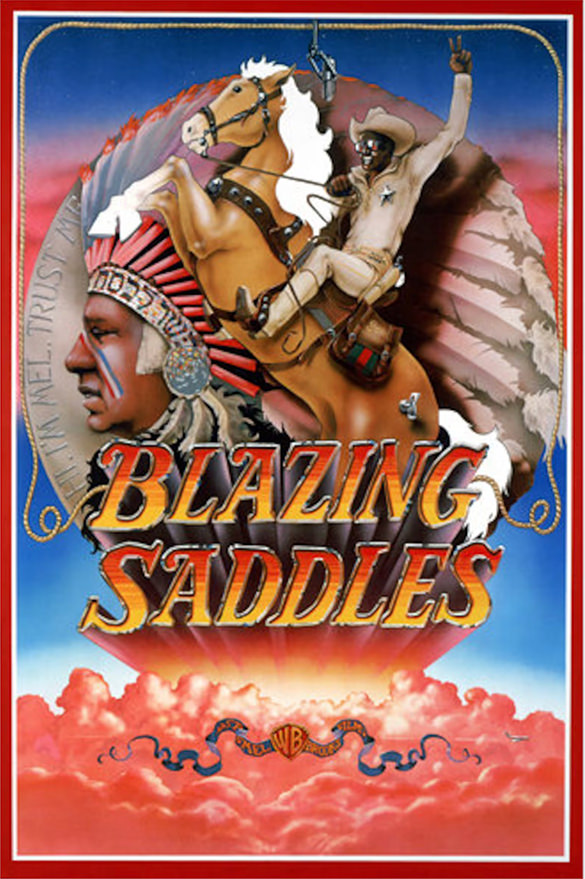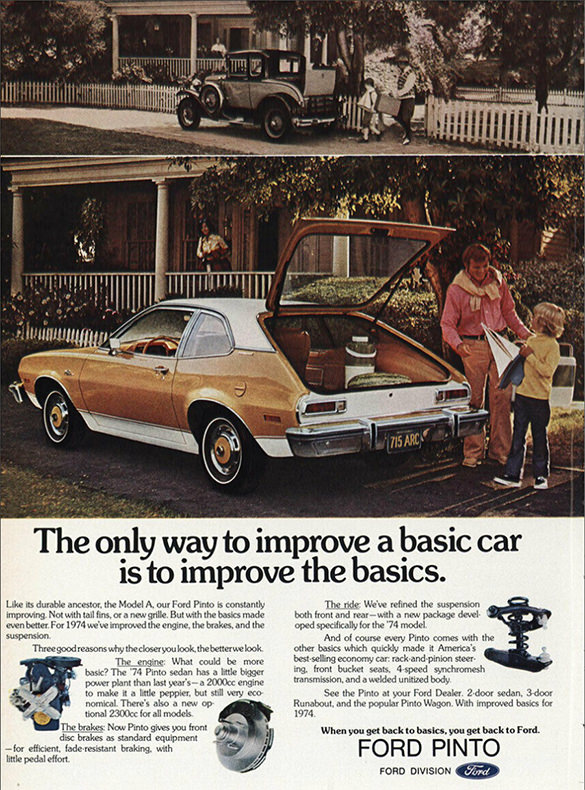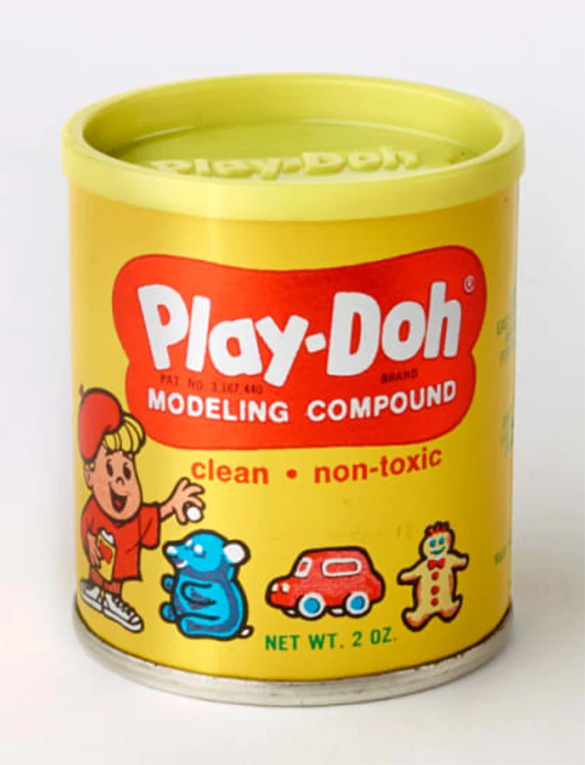Features
Biking along Town Lake in Austin (1974)
Back in time: 1974
A look back at Austin and the world fifty years ago

So, what's new? Looking back 50 years to 1974, seems a lot like 2024: social and political upheaval around the world then and now. We'll take a whirlwind tour of 1974 and let you decide what's changed... and what hasn't.

Mel Brooks' wild west comedy Blazing Saddles, starring Cleavon Little, Gene Hackman, and Slim Pickens, tops the 1974 U.S. box office with a gross of $119,500,000 (equivalent to $744,271,694 in current dollars).
Austin's population hits 297,500, growing 2.5% over 1973.
Money matters:
• The U.S. inflation rate (12 month average) is a whopping 11.04%; the unemployment rate is 7.2%.
• Average household income is a bit over $13,000, equivalent to about $81,325 today.
• Gasoline averages 53¢ per gallon.
• 1974's best-selling car, the Ford Pinto, has a base price of $2,292 (adjusted for inflation, around $14,275 in current dollars).
• The U.S. minimum wage increases to $2.00 an hour.
• First class postage rises to 10¢.
• A movie ticket averages $1.87, equivalent to $11.65 today.
• The cost of a new home averages $34,500.
• Where you shopped for groceries in Austin: A&P, Gulf Mart, Handy Andy, H.E.B., Kroger, Minimax, Rylanders, Safeway, Sage.
• Annual summer musical at Zilker Hillside Theater: the old west-themed Paint Your Wagon, which has among its principal cast Karol Phelan, who provides harmony vocals on Sonobeat's Herman Nelson demo album in 1968.
The variety of Austin nightlife – where there's something for everyone – in 1974 helps cement the city's growing reputation as the Live Music Capital of the World:
Arkie's Dessau (North Interstate 35 [I-35] at Dessau Road)
Armadillo World Headquarters (525½ Barton Springs Road)
Big Gil's Club (5200 South Congress Avenue)
Broken Spoke (3201 South Lamar)
Bucket, The (23rd and Pearl Streets)
Castle Creek (1411 Lavaca)
Carousel Lounge (1110 East 52nd Street)
Eli's Club (6208 North Lamar)
Hungry Horse (1809 San Jacinto)
InnTrigue, The (1112 West 6th Street)
Jade Room, The (1501 San Jacinto)
Nero's Nook (629 West Ben White)
Saddle Club, The (5420 Airport)
Saxon Pub (38th and Interregional [I-35])
Skyline Ballroom (11306 North Lamar)
Split Rail Inn (217 South Lamar)
Sportsmans Inn (Fredricksburg Highway)
Torch, The (3615 South Congress)
World population in 1974: 3.996 billion, increasing 1.9% over 1973; U.S. population increases to 213.9 million.
January news highlights: In college football (the U.S. kind of football), the Ohio State Buckeyes beat the University of Southern California Trojans 42-21 in the Rose Bowl classic in Pasadena, California; over in the NFL, the Miami Dolphins best the Minnesota Vikings 24–7 in Super Bowl VIII played at Rice Stadium in Houston, Texas; U.S. president Richard Nixon refuses to provide White House audio tapes subpoenaed by the Congressional Watergate Committee; beloved TV comedy Happy Days, starring Ron Howard, Henry Winkler, Marion Ross, and Tom Bosley, premieres on ABC.
February news highlights: Publishing magnate Randolph Hearst's daughter Patty Hearst is kidnapped by the militant Symbionese Liberation Army; debut of the annual American Music Awards (1974 winners include Jim Croce and Helen Reddy); Pakistan officially recognizes Bangladesh; the first issue of People magazine hits newsstands.
March news highlights: A Washington D.C. grand jury determines that U.S. President Richard Nixon is involved in the Watergate break-in cover-up; a Turkish airliner crashes outside Paris, killing all 346 passengers and crew; Charles de Gaulle Airport opens in Paris; Sicily's Mount Etna erupts; Mariner 10 sends back stunning photos from its Mercury fly-by.
April news highlights: ABBA wins the Eurovision Music Contest with its original song Waterloo, beginning a long run as a top international music act; Israel prime minister Golda Meir resigns; U.S. President Richard Nixon finally provides the Watergate Committee with "edited" White House tape transcripts related to the Watergate break-in.
May news highlights: West German Chancellor Willy Brandt resigns; U.S. House of Representatives Judiciary Committee begins formal hearings on President Richard Nixon impeachment; the Boston Celtics best Milwaukee to take the NBA championship title for the 1973-'74 season; Los Angeles police and the Symbionese Liberation Army, kidnappers of Patty Hearst, engage in a street gun battle that kills six SLA members; India successfully tests its first atomic bomb, followed by U.S., Great Britain, and U.S.S.R. nuclear bomb tests.
June news highlights: The Heimlich maneuver to save choking victims is introduced; investigative reporters Bob Woodward and Carl Bernstein publish All The President's Men, focusing on the Watergate break-in and scandal; the Irish Republican Army bombs the British Parliament in London, injuring many but killing none; the now-ubiquitous Universal Product Code (UPC) makes its debut on Wrigley's chewing gum; U.S. President Richard Nixon visits the U.S.S.R.
July news highlights: Isabel Perón succeeds husband Juan as President of Argentina; The U.S. House of Representatives Judiciary Committee releases its Watergate inquiry evidence; art rock pioneers The Moody Blues open the first quadrophonic recording studio in the U.K. a year after Sonobeat begins its quad recording experiments and rebrands (briefly) as Sonoquad Studios; the U.S. House of Representatives Judiciary Committee approves and votes to proceed with two Articles of Impeachment against President Richard Nixon as the U.S. Supreme Court unanimously rules Nixon must turn over White House Watergate audio tapes.
August news highlights: U.S. President Richard Nixon takes to television to announce his impending resignation (to avoid impeachment); U.S. Vice President Gerald Ford succeeds resigning President Richard Nixon; the U.S., U.S.S.R., and France conduct nuclear tests (this happens on and off throughout 1974).
September news highlights: U.S. President Gerald Ford signs the Employee Retirement Income Security Act, better known as ERISA; President Gerald Ford pardons former President Richard Nixon of all federal crimes; BART (Bay Area Rapid Transit) begins rail service via tunnel under the San Francisco Bay; President Gerald Ford announces conditional amnesty for U.S. Vietnam War deserters.
October news highlights: Tobe Hooper's horror classic The Texas Chainsaw Massacre premieres in Hooper's (and Sonobeat's) hometown, Austin, Texas; the Watergate cover-up trial begins in Washington, D.C.; the Oakland Athletics beat the Baltimore Orioles to take the MLB American League Championship, and the Los Angeles Dodgers beat the Pittsburgh Pirates to take the MLB National League Championship, setting up the 1974 World Series between the Athletics and Dodgers (the Athletics win the World Series); bussing-based race riots break out in Boston, Massachusetts, leading to intervention by the National Guard; Muhammad Ali knocks out George Foreman in the "Rumble in the Jungle" world heavyweight bout in Zaire.
November news highlights: Washington D.C. elects its first mayor, Walter Washington (appropriately); legendary opera soprano Maria Callas makes her final public appearance; the U.S. Justice Department files an antitrust suit to break-up telecommunications giant AT&T; the United Nations General Assembly recognizes Palestine's right to sovereignty; the Vladivostok Summit between U.S. President Gerald Ford and U.S.S.R. General Secretary Leonid Brezhnev leads to the SALT-II nuclear arms reduction treaty; the first complete Australopithecus skeleton, dubbed Lucy, is discovered in Ethiopia.
December news highlights: the Dow Jones index hits a record high of 570.01; Georgia governor Jimmy Carter announces his candidacy for the Democratic nominee for U.S. President; the Irish Republican Army bombs the home of former U.K. Prime Minister Edward Heath but no one is killed or injured; former U.S. astronaut John Glenn joins the U.S. Senate representing Ohio; Cyclone Tracy devastates Darwin, Australia; Pakistan suffers a 6.3 earthquake that kills over 5,000; the Beatles break-up becomes official on December 31st.
Throughout 1974: Victims of serial killer Ted Bundy begin to disappear one by one, primarily from northwest U.S. states; eventually Bundy confesses to 30 murders, but more young women and girls are believed to have perished at his hands between 1974 and 1978.
Notable inventions in 1974: Rubik's Cube, invented by Hungarian artist Ernő Rubik, but it won't be made available worldwide until 1980; TCP (The Transmission Control Program), which will become the basis for the Internet; the lithium-ion battery, but it won't become available for consumer product use until the 1980s.
Notable products first introduced in 1974: Bailey's Irish Cream (liquor), DayQuil (over-the-counter cough and cold medication), Meow Mix (cat food), Playmobil (children's toys), Skittles (candy).
Notable companies formed in 1974: Alamo Rent-A-Car (rental car agency), Fantastic Sams (haircut franchise), Foot Locker (footwear retailer), Kendall-Jackson (vinyard and winery), Tuesday Morning (discount home goods).
Notable losses in 1974: Bud Abbott (half of the comedy team of Abbott and Costello), "Tex" Ritter (country music star), Lynda Ann Healy (first known victim of serial killer Ted Bundy), Anne Klein (fashion designer), Chet Huntley (TV news anchor), Vinnie Taylor (Canned Heat singer), Agnes Moorehead (actress), Juan Perón (President of Argentina), Earl Warren (governor of California and U.S. Supreme Court Chief Justice), "Dizzy" Dean (baseball icon), James Chadwick (physicist and discoverer of the neutron), Lightnin' Slim (blues singer and songwriter, whose song Bad Luck And Trouble is covered by Sonobeat artist Johnny Winter, Cass Elliot (singer and founding member of The Mamas and The Papas), Charles Lindburg (aviator), Jacqueline Susann (author of Valley of the Dolls), Walter Brennan (actor), Cliff Arquette (comedian professionally known as Charlie Weaver), Coco the Clown (Russian-born British clown), Oskar Schindler (Austrian businessman and subject of Steven Spielberg's movie Schindler's List), Ed Sullivan (TV variety show host), U Thant (Secretary General of the United Nations), Jack Benny (comedian).
Among future celebrities born in 1974 are actors Christian Bale and Leonardo DiCaprio, TV show hosts Jimmy Fallon and Ryan Seacrest, rappers Lil Kim and Nelly, baseball star Derek Jeter, reality TV star Bear Grylls, singers Jewel and Alanis Morissette, fashion designer Kendra Scott, and model Kate Moss.
Color of the Year: Burnt orange. Coincidentally, The University of Texas' official colors are burnt orange and white.
Chinese Zodiac: 1974 is the Year of the Tiger; those born under this sign tend to be charming, courageous, confident, honest, trustworthy, a little (or a lot) stubborn, either extremely chatty or extremely quiet, and generous, among many similar traits. Does that describe you?
Best Picture of 1974 (Oscars®; awarded in 1975): The Godfather Part II, following a fictional Mafia family headed by Vito Corleone (played by Robert De Niro).
Best Actress of 1974 (Oscars®; awarded in 1975): Ellen Burstyn for her performance in Alice Doesn't Live Here Anymore.
Best Actor of 1974 (Oscars®; awarded in 1975): Art Carney for his performance in Harry and Tonto.
Outstanding Drama Series for the 1973-'74 season (Emmys®; awarded in 1975): PBS's Upstairs, Downstairs.
Outstanding Comedy Series for the 1973-'74 season (Emmys®; awarded in 1975): The Mary Tyler Moore Show.
Outstanding Musical or Variety Series for the 1973-'74 season (Emmys®; awarded in 1975): The Carol Burnett Show.
Top Hot 100 Single of the Year (Billboard Magazine): The Way We Were • Barbra Streisand, performing the title song from the movie of the same name, in which she stars with Robert Redford.
Record of the Year (Grammys®; awarded in 1975): I Honestly Love You • performed by Olivia Newton-John.
Album of the Year (Grammys®; awarded in 1975): Fulfillingness' First Finale • produced and performed by Stevie Wonder.
Best Song of the Year (Grammys®; awarded in 1975): The Way We Were • performed by Barbra Streisand and written by Marvin Hamlisch.
Best Country Song (Grammys®; awarded in 1975): A Very Special Love Song • performed by Charlie Rich and written by Billy Sherrill and Norro Wilson.
Best New Artist of the Year (Grammys®; awarded in 1975): Marvin Hamlisch.
Best-Selling Books of 1974 (The New York Times bestsellers list): Burr by Gore Vidal, Watership Down by Richard Adams, Tinker Tailor Soldier Spy by John le Carré, and Centennial by James Michener.
Miss America: Texan Shirley Cothran becomes the 47th Miss America.
Miss Universe: Amparo Muñoz y Quesada, the first and only Miss Universe from Spain. She resigns her crown after only a 6-month reign, unwilling to following the pageant's rules and regulations.
Favorite newborn boy's name: Michael holds the top spot for the 13th straight year.
Favorite newborn girl's name: Jennifer holds the top spot for the fifth consecutive year.
1974 is a tough year for Sonobeat Records, which has no commercial releases but records several promising acts at its new Blue Hole Sounds studio nestled just outside the tiny town of Liberty Hill in the Central Texas hill country.

The best selling car in the U.S. in 1974 is Ford's low-cost Pinto. Why so inexpensive? It has only an 80 horsepower engine!

